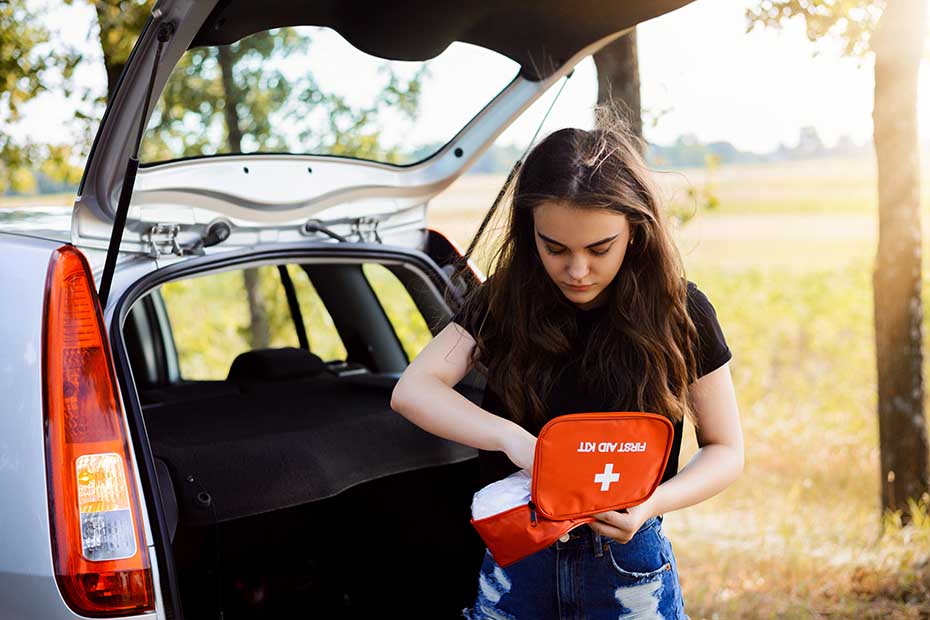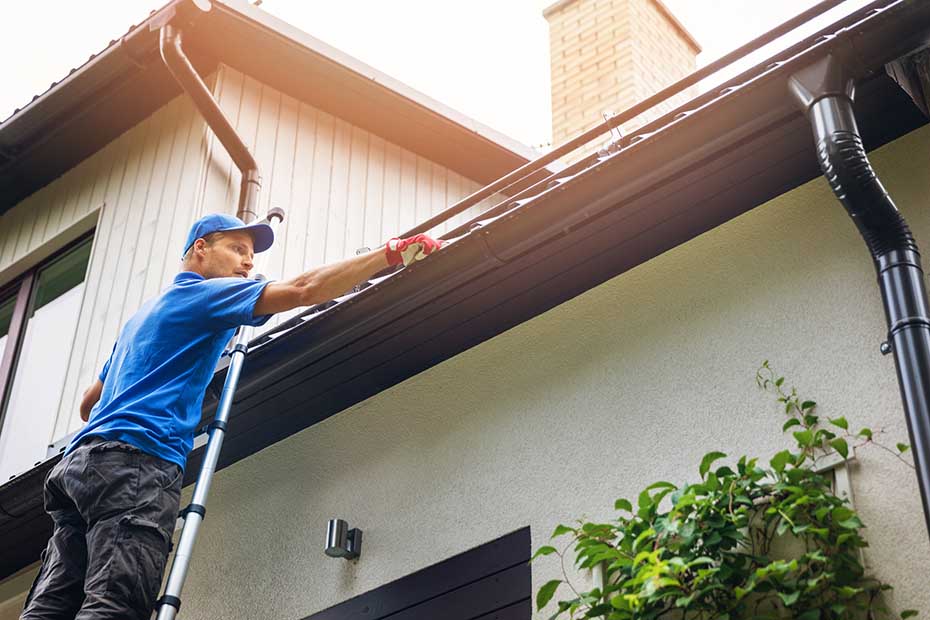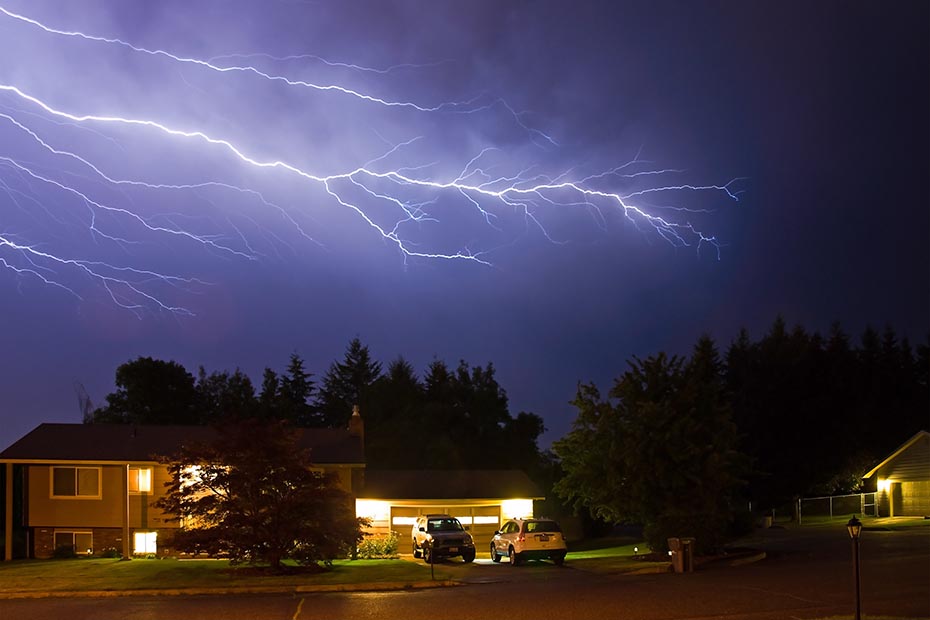Just like unexpected bills can throw plans off track, it’s hard to imagine what could happen if you or your partner were suddenly left to cover all of those costs alone. Life insurance can cost as little as $13 a month* but create a safety net for your children as they grow.
Life insurance is an important part of a larger discussion around family finances and ways to protect your family’s financial wellness and overall well-being. To buy life insurance, parents pay a monthly or annual cost (called a “premium”) for a set number of years (called a “term”), so loved ones can receive a lump sum of money when you pass away. How much money they receive depends on the plan you purchase — it could be anywhere from $25,000 to $25 million — but it can be enough to help your family bounce back, cover funeral costs, stay in their home, or go to university one day.
Understanding how life insurance impacts your family’s finances is the first step to putting them on the path to a more secure and stable financial future.
Why is life insurance important for parents?
Protecting your family’s future
You’d do anything to protect your family right now. What about when you’re not here? Life insurance can help you leave money for your partner and children, safeguard your family’s financial future, and try to ease any future burden on them — which can help ease your mind now. Signing up for a plan now means that you’re covered right now, and not relying on savings to build up over the long term.
The financial impact on a family if a parent passes away
Losing a parent early or unexpectedly can have a devastating impact on families. Without life insurance coverage or savings, your surviving partner and kids may find themselves unable to cover their costs at all. Some common challenges include:
- Inability to make mortgage payments and having to move out of the family home.
- Scrambling to cover unexpected bills, like final expenses including funeral expenses.
- Inability to meet daily expenses, like monthly bills and car payments.
- Unable to save for children’s education in the future, or having to cash out education funds to pay for other bills now.
Aside from covering costs, life insurance benefits can help give your family members a much-needed boost and help them achieve their dreams, like having enough money to attend the school of their choice, the funds to start their own business, have their dream wedding, or even travel.
How much life insurance do parents need?
There’s no magic number when it comes to how much life insurance coverage you need for your family. It may depend on your age, the ages of your kids, your phase of life, your family’s size, and your ongoing financial needs. When determining the amount of life insurance coverage you want for your family, it’s important to consider factors like:
- How many dependents you have
- If you’re the sole income or main provider
- What your family’s debt load is
- If your house has been paid off
- Whether you have other investments that can cover costs for your family, such as a Registered Retirement Savings Plan (RRSP)
- Personal goals like wanting to pay for your children’s educations or weddings in the future
As well, the more coverage you have, the higher the monthly premium payment is likely to be. If money is already tight, you may choose a coverage amount that has a lower monthly fee and meets your short-term needs.
Some other ways life insurance can help parents prepare for the unexpected include:
Paying off debts and final expenses
Many people don’t realize that some debts and loans, such as private student loans, aren’t forgiven when you pass away. Life insurance can help you cover those debts and protect your loved ones from taking on those costs after you’re gone. Not having to pay down loans and being able to pay out mortgages could lighten the load of their daily living expenses.
Covering funeral expenses and other end-of-life costs
Funerals and end-of-life expenses, such as legal fees and taxes, can cost thousands and can catch families by surprise. Life insurance can help cover these costs and help pay for the funeral you want.
Providing for your children’s education
School is expensive. It can cost many thousands to put kids — or multiple kids — through college and university. Life insurance can help ensure your family doesn’t have to make tough choices down the road. Both term life insurance and permanent life insurance death benefits can be used to cover education costs if you pass away. As well, some permanent life insurance plans have the option to cash out the money you’ve invested so far while you’re alive and help your kids out along the way.
Estate Planning
Life insurance can help reduce or even eliminate the government tax paid on your assets when they get transferred to your family, to ensure a smoother transition. Some permanent life insurance plans are tax-sheltered investment opportunities, which means you can add money and grow your investments along the way, knowing your family won’t have to pay taxes for receiving it.
Supporting a spouse or surviving partner
When a spouse or partner passes away, the surviving partner is suddenly responsible for all of the bills — the mortgage, the groceries, daycare and other bills can pile up quickly. Life insurance is one way to help keep taking care of your partner long-term, so they can keep living the lifestyle they’re used to. As well, some life insurance plans offer joint coverage options or options for insuring all family members.
Life insurance as a long-term investment
Life insurance can act as an investment vehicle. Depending on the specific plan, permanent life insurance may be a way to invest and grow your wealth while protecting your family’s financial future. Some choose it for its flexibility over other investment plans, like Registered Retirement Savings Plans (RRSPs) and Registered Education Savings Plans (RESPs) which have defined purposes (paying for retirement and education costs). You and your loved ones can use the money for whatever you want. It could also help your family with daily living expenses, purchasing a car, paying off debts, putting a down payment on a home, or taking the dream trip you always talked about — anything they choose.
Choosing the right life insurance policy for your family
The different types of life insurance policies available
Term life insurance: Term life insurance plans are an option for young families who prioritize affordability and short-term protection or are prioritizing paying off debts and paying into other plans, like an RESP. Term plans are more affordable than permanent plans in the short term and fees stay the same throughout, so you can predict your expenses. You pay a small amount over a set period of time (called a term), usually between 10 and 40 years, and are covered as long as you’re making those payments within that term. Coverage expires when your term runs out or you stop paying (however, there may be options to convert it to a permanent plan down the road).
Permanent life insurance: Permanent coverage is more expensive than term coverage upfront but it covers you for life, even when you’ve finished your payment term. There are several types of permanent life insurance plans, like Whole life insurance, Universal life insurance, and T100 life insurance.
Whole life insurance fees won’t change over time. You will still be insured for life, even when your payments end. Some people who like to take a “set it and forget it” approach to their finances and investments may choose this hands-off option.
Universal life insurance plans are more flexible types of permanent plans, allowing you to update your policy premiums and benefits in the future, so you can adapt to your changing life. Some people may choose this option because they love being hands-on with investments and enjoy managing investment risks for the possibility of more growth.
T100 life insurance, also known as Term 100 life insurance, is a simpler permanent plan. It offers lifetime coverage like other plans but without investment perks. You pay a set fee each month or year for the rest of your lifetime, or until you reach age 100.
How to choose a policy that meets your family’s needs
Choosing a life insurance plan now can help you set your family up for success later and protect your family’s financial future.
How much life insurance coverage does my family need?
There are many different factors that determine how much coverage you may need. Consider things like your annual salary, how long you want to cover your family, how many children or dependents you have, and how much debt you carry, like your mortgage balance.
Can I add beneficiaries later, like if I have more children?
Of course! You can change and add beneficiaries at any time, including dependents like children, grandchildren, parents, or partners over the years.
What is the best age for parents to buy life insurance?
There is no ideal age to buy life insurance. Parents may choose to buy plans before they have kids or wait until later in life. However, because older people tend to have more health issues, signing up for life insurance at a younger age can make it easier to qualify and help you if health issues arise in the future.
Can I insure individual members of my family?
Depending on your life insurance plan, you can insure yourself, sign up for joint coverage for you and your spouse, get coverage for future spouses, and even insure your children.
Are death benefits taxed?
A death benefit is the lump sum of money paid out to your loved ones or beneficiaries when you die. It’s tax-free, so your family can avoid being caught off guard by unexpected fees or deductions.
Can I receive money for a critical illness?
Death benefits are only paid out when you pass away, but some permanent life insurance plans have options to cash out the value you’ve paid into the plan while you’re still alive. This can be a way to help cover expenses of an unexpected critical illness, or another unexpected major cost.
Parents have different reasons for wanting life insurance at different life stages. A licensed insurance advisor can help you ask the right questions and develop a personalized plan that will ensure you make the right choice for you and your family.
Speak with an RBC Insurance Advisor by calling 1-888-925-0946 or Have an Advisor Call Me. Want to speak with an advisor in person? Find an Advisor or Store.
*Rate based on a $100,000, Term 10 policy for a male, age 37, non-smoker.
*Home and auto insurance products are distributed by RBC Insurance Agency Ltd. and underwritten by Aviva General Insurance Company. In Quebec, RBC Insurance Agency Ltd. Is registered as a damage insurance agency. As a result of government-run auto insurance plans, auto insurance is not available through RBC Insurance in Manitoba, Saskatchewan and British Columbia.
This article is intended as general information only and is not to be relied upon as constituting legal, financial or other professional advice. A professional advisor should be consulted regarding your specific situation. Information presented is believed to be factual and up-to-date but we do not guarantee its accuracy and it should not be regarded as a complete analysis of the subjects discussed. All expressions of opinion reflect the judgment of the authors as of the date of publication and are subject to change. No endorsement of any third parties or their advice, opinions, information, products or services is expressly given or implied by Royal Bank of Canada or any of its affiliates.
1. Rate based on a $100,000, Term 10 policy for a male, age 37, non-smoker. This does not constitute advice. Please speak with a licensed insurance advisor for more information on what coverage is suitable for your needs. Subject to policy exclusions. Underwritten by RBC Life Insurance Company. The information within this site is not intended to provide tax advice. You should seek independent tax advice from a tax professional or advisor.










